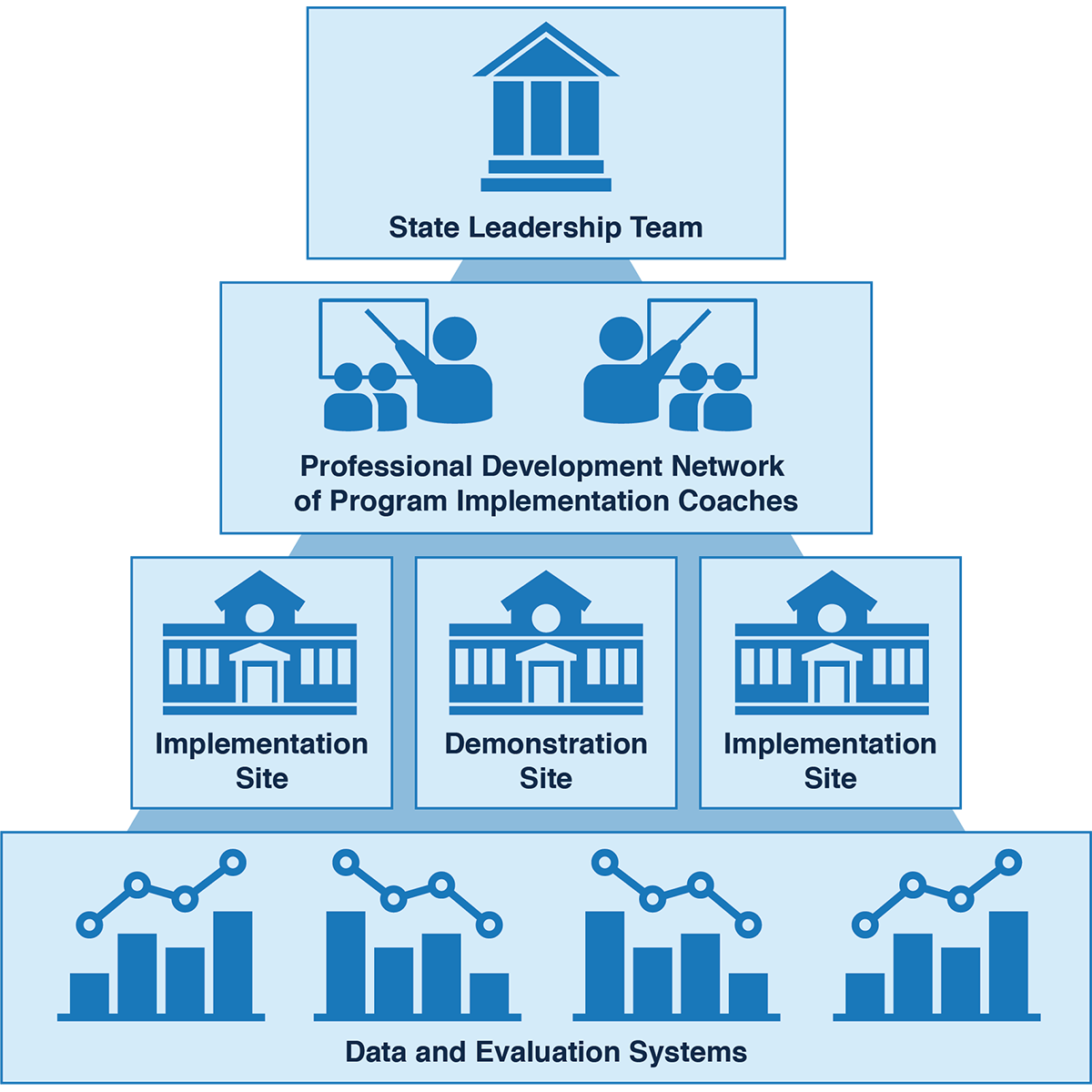Early Childhood Implementation Snapshots, No. 3: Professional Development Network of Program Implementation Coaches
- updated January 31, 2025
- by Angie Van Polen



The Professional Development Network of Program Implementation Coaches (PDN) are professional development experts responsible for providing training and coaching to implementation sites to increase understanding and application of evidence-based practices to support high-fidelity implementation of practices at sites.
The PDN is key to building personnel capacity in the state. It provides coaching and support to sites, and training for site coaches. PDN Program Implementation Coaches also help site Program Leadership Teams (PLT) with data collection and using data for making decisions, as well as using the Benchmarks of Quality. The Benchmarks of Quality tool is used to develop staff buy-in, engage families, set implementation support, and expand practice implementation program-wide.
Program Implementation Coach: Guiding Program-Wide Fidelity
This video provides an overview of what a Pyramid Model Program Implementation Coach is, their requirements and responsibilities.
Voices from the Field: Michigan

Beginning in 2020, the state of Michigan ventured into a partnership with NCPMI focused on program-wide implementation of the Pyramid Model in preschool classrooms. Led by Pat Sargent of the Michigan Department of Education and Michelle McQueen of Michigan's MTSS Technical Assistance Center (MiMTSS TA Center), work is well underway to build the capacity of four implementation sites across the state to serve as models for future scale-up.
Michigan's Early Childhood MTSS Implementation Team has relied heavily on the Statewide Implementation Guide to jump-start its PDN. Drawing upon the sample recruitment and selection materials from the Statewide Implementation Guide, the MiMTSS TA Center created an application process that was used to recruit and select two staff internal to the TA Center to fulfill the role of Program Implementation Coaches. As Michigan's first Program Implementation Coaches, Michelle McQueen and Allison Olivo will be instrumental not just in supporting Michigan's first cohort of sites but also in shaping the vision for scale-up of the PDN. Conversations are already underway for the recruitment and selection of future Program Implementation Coaches with an eye toward capacity building across the different regions of Michigan.
Considerations
- What is the overall mix of characteristics of the network of program implementation coaches? Is it representative of the programs served?
- What trainings are offered to support program implementation coaches' capacity and competence?
- What is the geographic representation of program implementation coaches in the state?
- Where are trainings occurring and in what languages are trainings being offered?
- What agencies support the PDN of program implementation coaches?
References
- Statewide Implementation Guide. (2019). ECTA Early Childhood Technical Assistance Center. https://ectacenter.org/sig
The contents of this page were developed under cooperative agreements from the U.S. Department of Education, #H326P17001 (ECTA Center), and #H326B170003 (NCPMI), from the Office of Special Education Programs, U.S. Department of Education. However, these contents do not necessarily represent the policy of the U.S. Department of Education, and you should not assume endorsement by the Federal Government.

